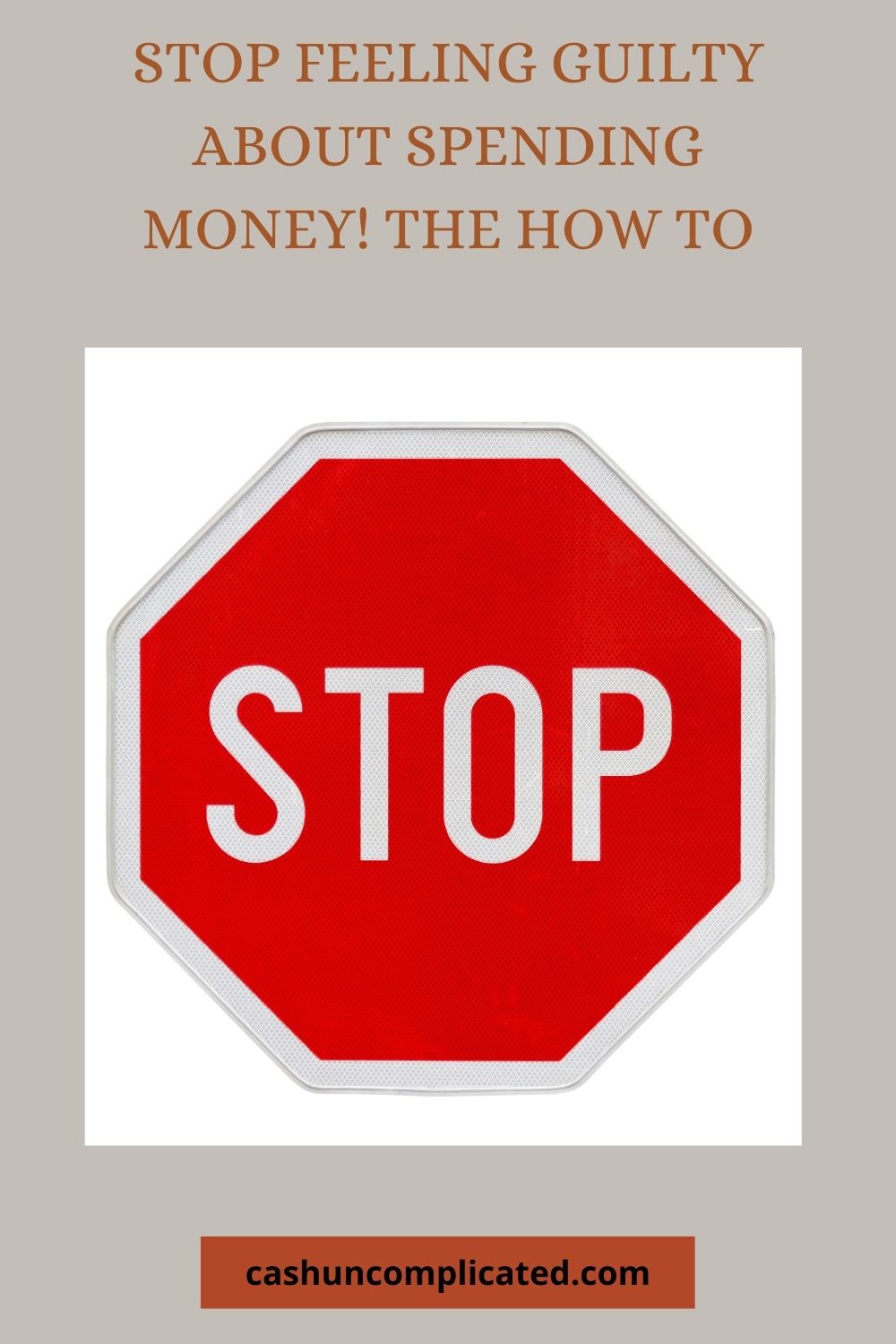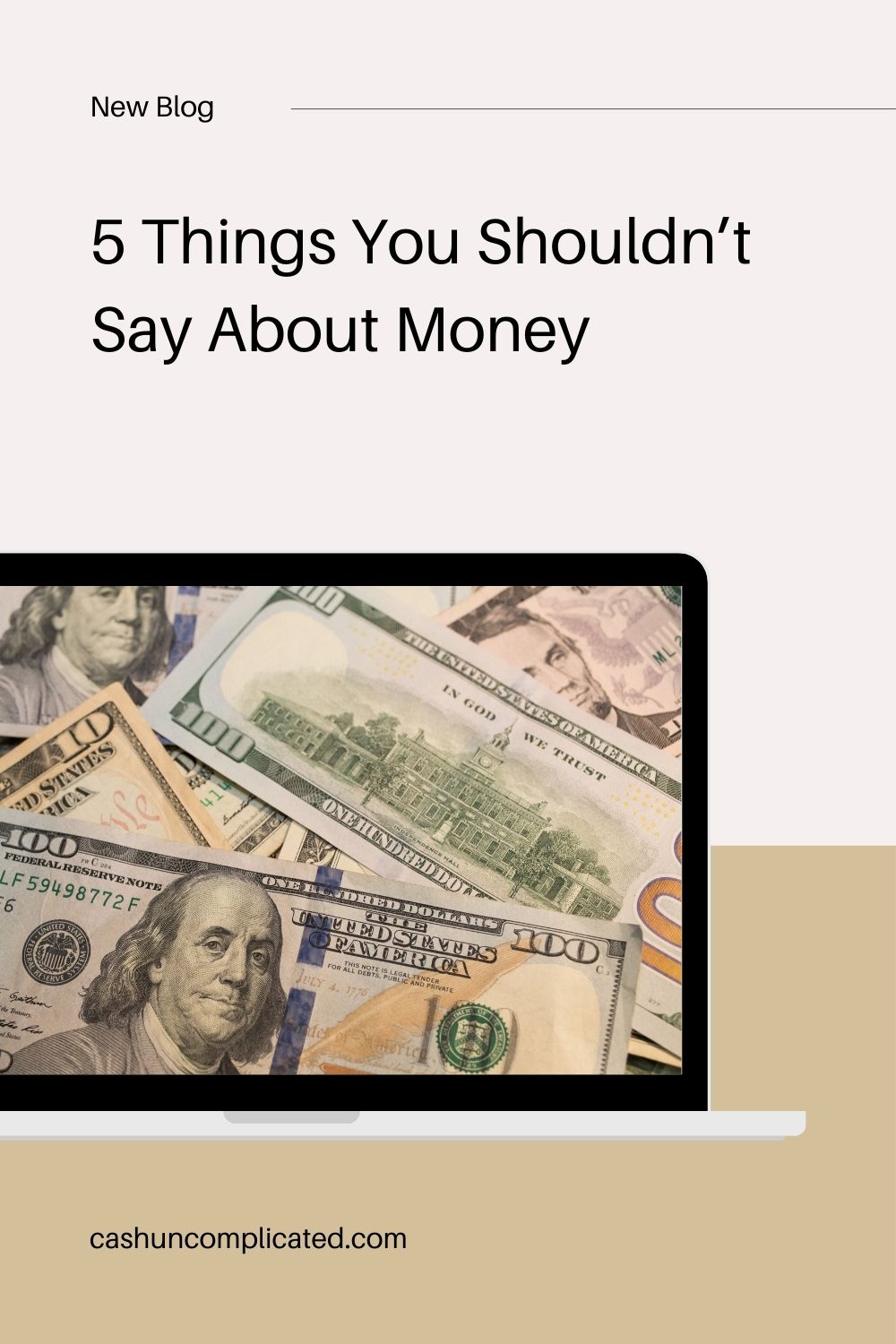It might be funny to hear this message coming from someone who is such a huge proponent of saving and investing, but I think it’s important to stop feeling guilty about spending money. The inspiration behind this post is from a recent conversation I had with a guy who said he’s not going on vacation this year because the stock market is down.
Which is something I hate hearing because this summer (and all summers) are a time in your life you’ll never get back. There are no rewinds or do-overs. When they’re gone, they’re gone. Summers of the past don’t care whether the stock market was up, down, or even. They’re gone, and they aren’t coming back.
Why Do People Feel Guilty About Spending Money?
I can’t help but think a lot of this thinking is guilt related. It’s painful to see years’ worth of investments drop 20 percent in only a few months. It feels strange to see this drop and in the same hour book a vacation that comes with its share of costs.
But market drops are not your fault, and you shouldn’t feel bad or guilty about them. They are a natural part of the economic cycle and shouldn’t dictate your life plans.
Back to the question of why people feel guilty about spending money. For some it’s a fear of not having enough–a fear that the money will run out and they’ll be in a bad position. There’s also cognitive dissonance in spending money when investments are losing value. It just feels weird to spend on yourself when it seems like part of your financial life is going downhill without any brakes.
Of course, there are myriad other reasons why people feel guilty about spending money, too many to list in just one post.
How to Stop Feeling Guilty About Spending Money
Now that we have some of the reasons why people feel guilty about spending money, it’s time to focus on how to stop feeling guilty about money. Below are nine easy ways to start. Before we start with specific strategies, it’s important to note that this should not be a free for all, or a license to spend on anything and everything.
This post is for people who are already saving and investing consistently, have no consumer debt, and are on track to reach their financial goals. Believe it or not, but sometimes the people most on track financially are the ones most hesitant to spend. So if this describes you, the rest of this post is for you.
Number 1: Look for Underlying Causes
This is where it helps to ask yourself the question of why you feel guilty about spending money. Is there an underlying cause? Something from your past that makes you averse to spending? Maybe it’s the way you grew up, or pressure put on you from parents or other relatives. Or maybe it’s a scarcity mindset.
The past is very powerful and when we figure out some of the underlying causes, it makes solving for the future much easier. So take a minute and think about some of the underlying causes.
Number 2: Write Down Your Values
In life, we have things we value and don’t value. I’m using the word “things” generically to pertain to family, experiences, tangible items people buy, etc. So this next step in how to stop feeling guilty about spending money is to write down your values.
Writing down your values provides clarity and guidance. It tells you what is important and what is unimportant. Strive to spend money on the important and eliminate or minimize spending on the unimportant. Another name for this is value-based spending.
Related: Value-Based Spending: How to Create a Budget Around What You Value
Number 3: Create Goals and Make a Plan
Now that your values are clearly defined, start creating some goals that pertain to your values. For example, if you value more time with family and friends, create a couple goals that will help you achieve this. That could mean a variety of things, for example:
- Buying one rental property a year to generate passive income
- Purchasing more index funds that will pay monthly dividends
- Starting a side business that will generate enough income to leave your full-time work
All of these examples are directly related to your top life value of spending more time with family and friends. Passive rental income will fund all/part of your lifestyle, providing you with more time with friends and family.
Same for monthly dividends and a side business that will allow you to cut back or leave your full-time work. The goals originate from your values, giving you a much bigger why than just some random goals created on a whim one day.
Number 4: Automate and Pay Yourself First
Automating your money is one of the most powerful things you can do to increase the wellbeing of your financial life. Not only to stop feeling guilty about money, but also to build wealth and savings. Arguably the biggest lesson from the book The Richest Man in Babylon is part of what you earn is yours to keep. This is accomplished by paying yourself first.
Paying yourself first means paying yourself before you pay your bills, house payment, or any other debts. The idea is that when you pay yourself first, you’re taking care of your future self and you’ll find a way to live on the remaining money. Paying yourself first not only ensures that you are saving and investing, but that you are also paying yourself first for the fun things as well.
This is really where automating and paying yourself first really helps to stop feeling guilty about spending money. You have made your investments and saved money because you paid yourself first. You’ve also paid yourself first for the fun things like a vacation fund.
The money is already there specifically for that reason, so spend it. Plus, you have already contributed money to your savings and investments, which is one of the most powerful strategies to build long-term wealth. Despite the market dropping, or other factors–you have done the hard work and made the right choices and it’s important to reward yourself for that.
Number 5: Make a Budget
This isn’t always the most fun step, but it’s a necessary one. And that is to make a budget. If you completed step four in setting up automations, making a budget will be much easier because you have already done most of the work.
If you have set up your automations correctly, your budget is the money left over after you have paid yourself first. Basically you just have to spend less than the money remaining after the automations. For example, a household income is $10,000 for the month, the allocation would look something similar to this:
- Investments: $1,500
- Savings: $1,000
- Vacations/general fun account: $750
In this scenario, 15 percent goes to investments, 10 percent to savings, and seven and a half percent to vacation/fun for a total of $3,250.
Your allocation will likely look different, but probably won’t be too far off from this scenario. The remaining amount ($6,750) is money left over for housing, food, daily living expenses, etc. Which is your budget. Spend under this amount and you’re good to go for the next month.
Number 6: Track Your Money
For extra clarity on what you are spending on, track your money. Most people are very surprised when they do this exercise because they find they are spending money on things they don’t value or even use. Track your money over the course of a few months and you’ll really learn where your money is going.
Ok, so tracking your money is helpful because it helps you to understand where your money is going and identify negative money patterns but what does it have to do with how to stop feeling guilty about spending money?
Simple–when you track your money, you weed out wasteful spending and eliminate spending patterns. When wasteful spending is identified and eliminated, there is more money to spend on what you truly value.
Number 7: Accept Spending Money on What You Value
Number seven on the list of how to stop feeling guilty about spending money is 100 percent mindset. There comes a point in time where you just need to accept spending money on what you value. Here’s my philosophy behind that statement.
You’ve already done the work–assessed your values, created a budget, eliminated wasteful spending, tracked your spending, automated your savings and investments, etc. You’ve screened out the unnecessary spending and left yourself with just necessities and things you highly value. In other words, you’ve done your best. If this describes you, give yourself permission to spend on what you value–you’ve earned it.
Related: How a Strict Budget Can Actually Cost You Money
Number 8: Be OK with Mistakes and the Unexpected
Understand that personal finance is never going to be perfect. It’s impossible. Everyone is going to make mistakes now and then with their money. It’s natural and to be expected.
The problem comes when people dwell on their mistakes and change the rules of their personal finance principles. For example, when the unexpected occurs like a drop in the stock market, (which actually isn’t that unexpected) there’s no need to change summer plans or not book a trip you’ve already saved up for. Those are separate buckets and don’t have a relation to each other.
Number 9: The Balance Between YOLO and Practicality
Last in the list of how to stop feeling guilty about spending money is finding the balance between YOLO and practicality. All of the previous strategies should help with this. One on hand, you only live once–the fact you are who you are is a miracle. And on the other hand, everyone should save and invest and live within their means.
That’s why it’s important to find the balance between the two. Following the strategies outlined in this post will help achieve that balance. Automate your savings and investments, cut out unnecessary spending, and automatically set aside money each month for the fun things. Once you’ve set that up, rest easy knowing you’ve found the balance and stop feeling guilty about spending money.
Conclusion
For many people, it’s hard to stop feeling guilty about spending money. So many of us have been told things like:
- Save and invest
- A penny saved is a penny earned
- Save up for a rainy day
- You never know when you’ll need the money
Which is all sound advice if taken in context. The problem occurs when that advice is taken too far and transitions to feeling guilty about spending any money. Many great things in life are free, but there’s also many things that aren’t. And those things and experiences require spending a little bit of money.
If you’ve followed sound financial principles during your life and are on track to reach your personal finance goals, give yourself permission to spend within your budget. You’re making the right choices and doing the hard work–there’s nothing wrong with rewarding yourself.
Are there times you feel guilty about spending money?









